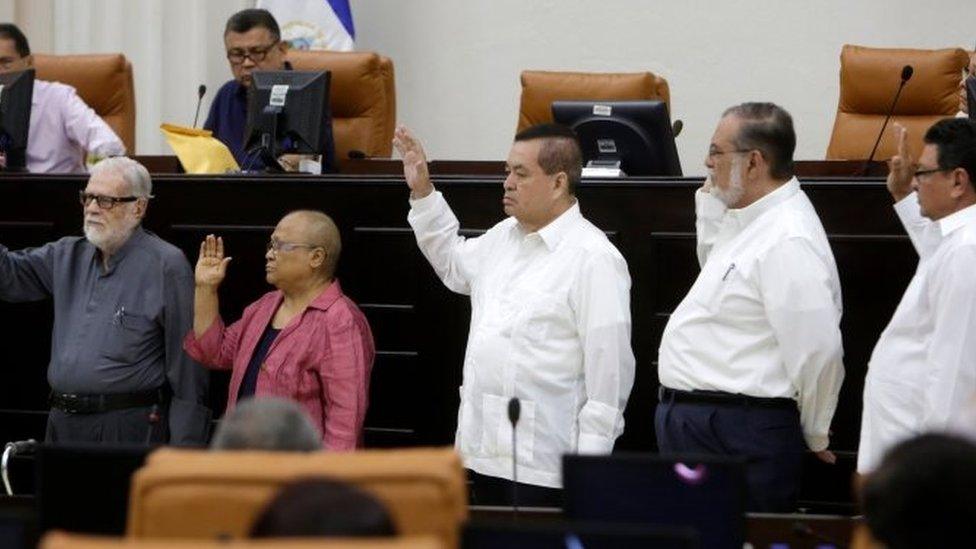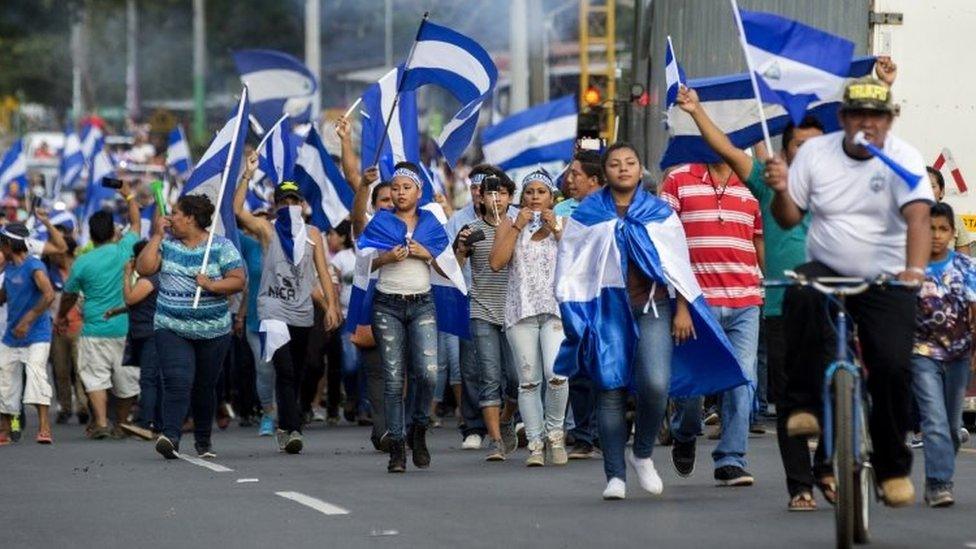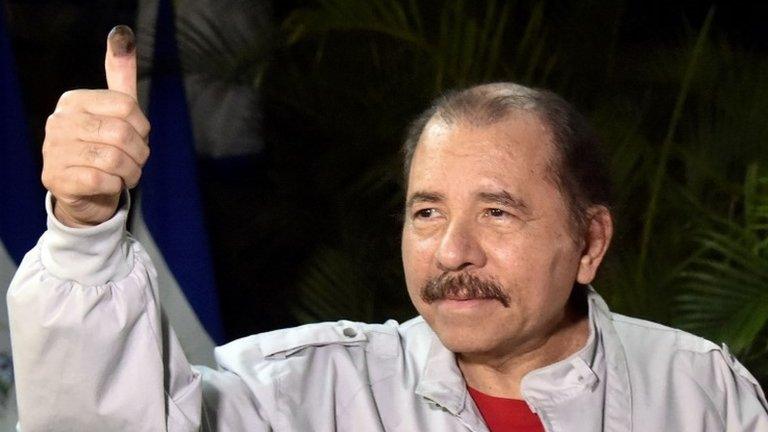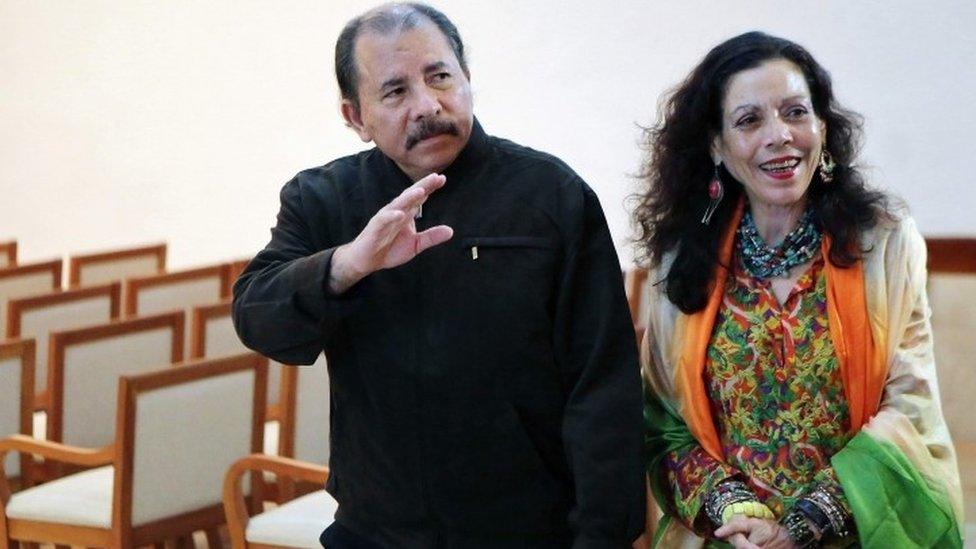Nicaragua sets up commission after protest deaths
- Published

The five-person panel is made up of government supporters
Nicaragua's congress has set up a commission to look into the deaths of dozens of anti-government demonstrators.
The protesters, mostly students, died during violent demonstrations over the last few weeks.
The unrest was sparked by President Daniel Ortega's pension reforms but changed into anger against the government.
Mr Ortega has agreed to talks.
Rights groups said 45 people died but officials stopped updating their toll after counting 10 deaths in the first three days.
The speaker of the Congress, Gustavo Porras, said the five-member panel of investigators would act independently of the legislature and be free to research where they wanted.
The panel has a three-month deadline by which to report back.
Student organisations have demanded an independent commission be set up with the participation of international bodies to investigate the deaths.
The students and other government critics say the congressional commission will not be independent since Congress is largely pro-government.

The protests have continued to take place on a daily basis since they began on the 18th April.
They accuse them of concentrating power in their hands and acting undemocratically.
The Inter-American Court of Human Rights asked the Nicaraguan government to be allowed to enter the country and investigate the violent but was told to "wait for developments in internal processes".
President Ortega has agreed to talks with the protestors brokered by the church but is yet to set a date for the discussions to begin.
The protests have been the worst Daniel Ortega has faced in over a decade since the former left-wing Sandinista rebel returned to power after a long period in opposition.
His party has an absolute majority in the one-chamber national congress.
Mr Ortega has blamed right-wing agitators for much of the violence, saying they have infiltrated the protests in order to discredit his left-wing government.
But the US said on Tuesday that it held the government responsible for the bloodshed.
- Published7 November 2016

- Published3 August 2016
